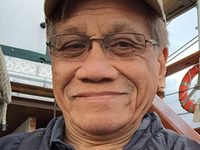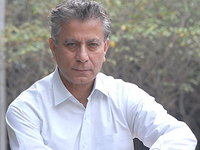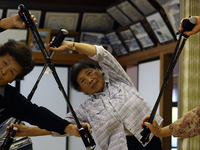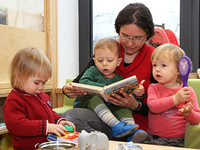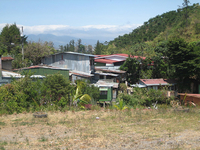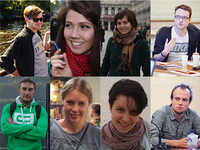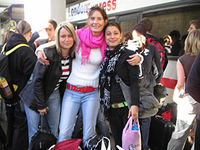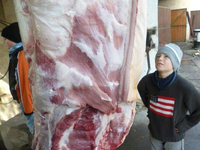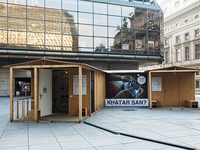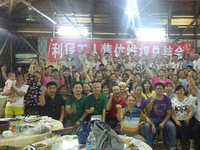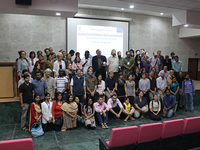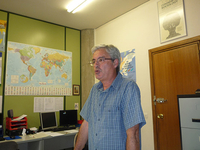GD 5.3 - September 2015
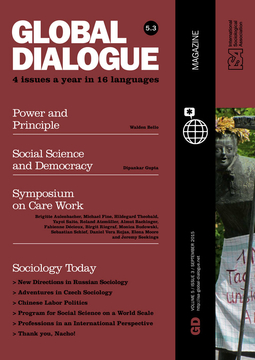
Global Dialogue is available in multiple languages!
Select the language to download the issue.
Editors:
Michael Burawoy.
Associate Editor:
Gay Seidman.
Managing Editors:
Lola Busuttil, August Bagà.
Consultants:
Ana Villarreal.
Media Consultant:
Gustavo Taniguti.
Consulting Editors:
Margaret Abraham, Markus Schulz, Sari Hanafi , Vineeta Sinha, Benjamin Tejerina, Rosemary Barbaret, Izabela Barlinska, Dilek Cindoğlu, Filomin Gutierrez, John Holmwood, Guillermina Jasso, Kalpana Kannabiran, Marina Kurkchiyan, Simon Mapadimeng, Abdul-mumin Sa’ad, Ayse Saktanber, Celi Scalon, Sawako Shirahase, Grazyna Skapska, Evangelia Tastsoglou, Chin-Chun Yi, Elena Zdravomyslova.
REGIONAL EDITORS
Arab World: Sari Hanafi , Mounir Saidani.
Brazil: Gustavo Taniguti, Andreza Galli, Ângelo Martins Júnior, Lucas Amaral, Rafael de Souza, Benno Alves, Julio Davies.
Colombia: María José Álvarez Rivadulla, Sebastián Villamizar Santamaría, Andrés Castro Araújo.
India: Ishwar Modi, Rashmi Jain, Pragya Sharma, Jyoti Sidana, Nidhi Bansal, Pankaj Bhatnagar.
Indonesia: Kamanto Sunarto, Hari Nugroho, Lucia Ratih Kusumadewi, Fina Itriyati, Indera Ratna Irawati Pattinasarany, Benedictus Hari Juliawan, Mohamad Shohibuddin, Dominggus Elcid Li, Antonius Ario Seto Hardjana.
Iran: Reyhaneh Javadi, Abdolkarim Bastani, Niayesh Dolati, Mohsen Rajabi, Faezeh Esmaeili, Vahid Lenjanzade.
Japan: Satomi Yamamoto, Masahiro Matsuda, Fuma Sekiguchi, Taiki Hatono, Hidemaro Inouye, Shinsa Kameo, Kanako Matake, Shuhei Matsuo, Kaho Miyahara, Noriko Nishimori, Shintaro Oku, Fumito Sakuragi, Yutaro Shimokawa, Mayu Shiota, Masaya Usui, Tomo Watanabe.
Kazakhstan: Aigul Zabirova, Bayan Smagambet, Gulim Dosanova, Daurenbek Kuleimenov, Ramazan Salykzhanov, Adil Rodionov, Nurlan Baygabyl, Gani Madi, Galimzhanova Zhulduz.
Poland: Jakub Barszczewski, Mariusz Finkielsztein, Weronika Gawarska, Krzysztof Gubański, Kinga Jakieła, Justyna Kościńska, Martyna Maciuch, Karolina Mikołajewska-Zając, Adam Müller, Zofi a Penza, Teresa Teleżyńska, Anna Wandzel, Justyna Zielińska, Jacek Zych.
Romania: Cosima Rughiniș, Corina Brăgaru, Costinel Anuța, Adriana Bondor, Ramona Cantaragiu, Alexandru Duțu, Irina Cristina Făinaru, Ana-Maria Ilieș, Ruxandra Iordache, Gabriela Ivan, Mihai-Bogdan Marian, Anca Mihai, Adelina Moroșanu, Monica Nădrag, Radu Năforniță, Oana-Elena Negrea, Elisabeta Toma, Elena Tudor.
Russia: Elena Zdravomyslova, Lubov Chernyshova, Anastasija Golovneva, Anna Kadnikova, Asja Voronkova.
Taiwan: Jing-Mao Ho.
Turkey: Gül Çorbacıoğlu, Irmak Evren.
GD 5.3 - September 2015
Editorial
Going Public, Going Comparative
In this issue we begin with two essays from Asia – one from the Philippines and the other from India – written by distinguished public intellectuals. Walden Bello follows a line of sociologists who have entered politics. For example, Global Dialogue interviewed Fernando Henrique Cardoso who became President of Brazil (GD3.4) and Nicolás Lynch who became Minister of Education in Peru (GD4.2). Bello describes the tensions and compromises involved in representing the Philippine opposition party, Akbayan, in parliament. An important writer on world development, Bello has had a long history of courageous interventions from breaking into the World Bank to discover its collaborations with the Marcos dictatorship to exposing the atrocities of the Philippine Communist Party whilst he was a member. Indian sociologist, Dipankar Gupta is another kind of public intellectual – a prolific scholar and at the same time a prominent member of major development organizations and national commissions that have brought him close to centers of power. Here he explores the close connection between democracy and social science.
We follow these disquisitions on public engagement with a symposium on one of the most pressing problems of our time, yet one sociology has been slow to investigate – the organization of care work. Put together by the indefatigable Brigitte Aulenbacher, the articles compare the marketization pressures on child and elderly care in Austria, Germany, Sweden, Japan, Spain, Australia, Chile, Costa Rica and South Africa. It is good to see ISA research committees nurturing such important comparative research.
Two essays from young scholars point to new directions in Russian sociology. The Public Sociology Laboratory in St. Petersburg challenges two prevailing conventions – the “instrumentalism” of policy research conducted at the behest of state or corporate clients and the “autonomism” of professionals who scurry into private obscurity. The Public Sociology Laboratory pursues a third road of critical engagement, building collaborations with civil society without sacrificing scientific rigor. The second Russian contribution is a photo essay of a district of St. Petersburg that still exhibits the socialist architecture of the early Soviet era. Time is ripe for a new generation of sociologists to recover the imagination that propelled the greatest and most tragic social experiment of the 20th century.
We have three interesting contributions from the Czech Republic – a study of Czech au pairs in England, a public exhibit of Roma migration, and the dilemmas of homeschooling. We have special columns on trade unionism in China, on a comparative study of professions, and on a novel program for promoting social science on a global scale. Finally, we say a fond good-bye to José Ignacio Reguera, aka Nacho, who has been a mainstay in the ISA office for three decades, quietly taking us into the electronic age of the 21st century. At the same time we welcome the Indonesian editorial team who will produce Global Dialogue in a 16th language.
Michael Burawoy, editor of Global Dialogue
Global Dialogue can be found in multiple languages.
Submissions should be sent to globaldialogue@isa-sociology.org.

